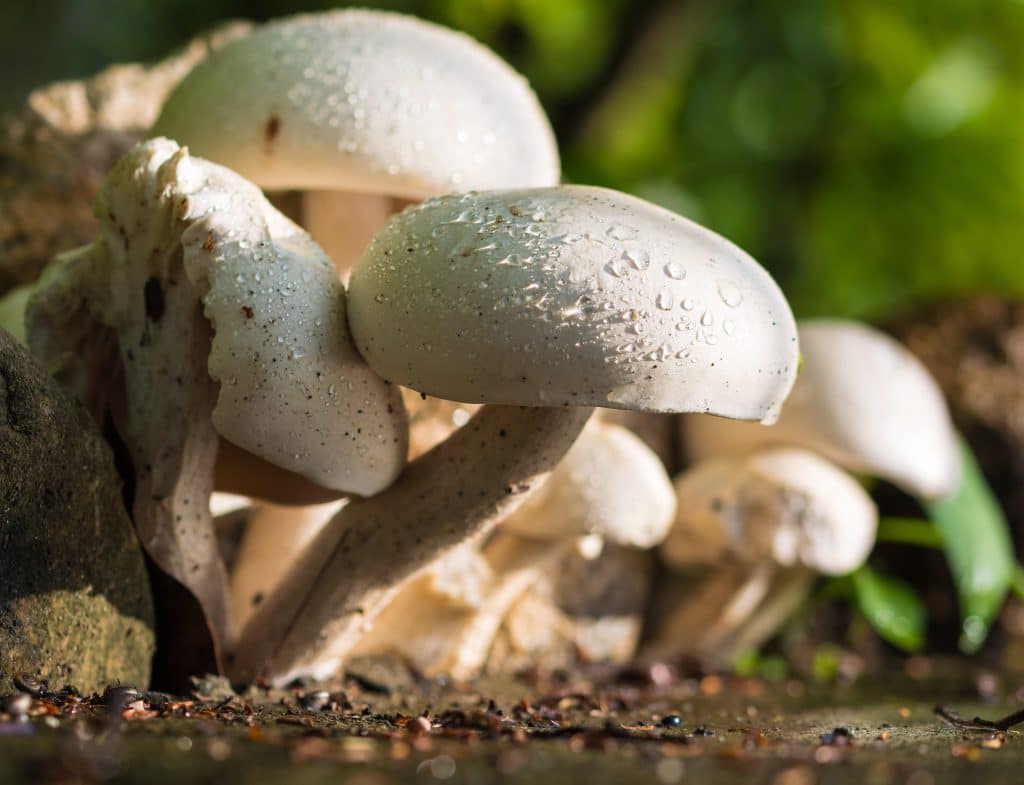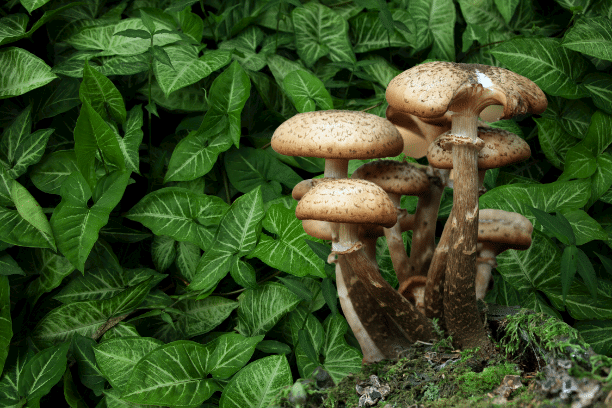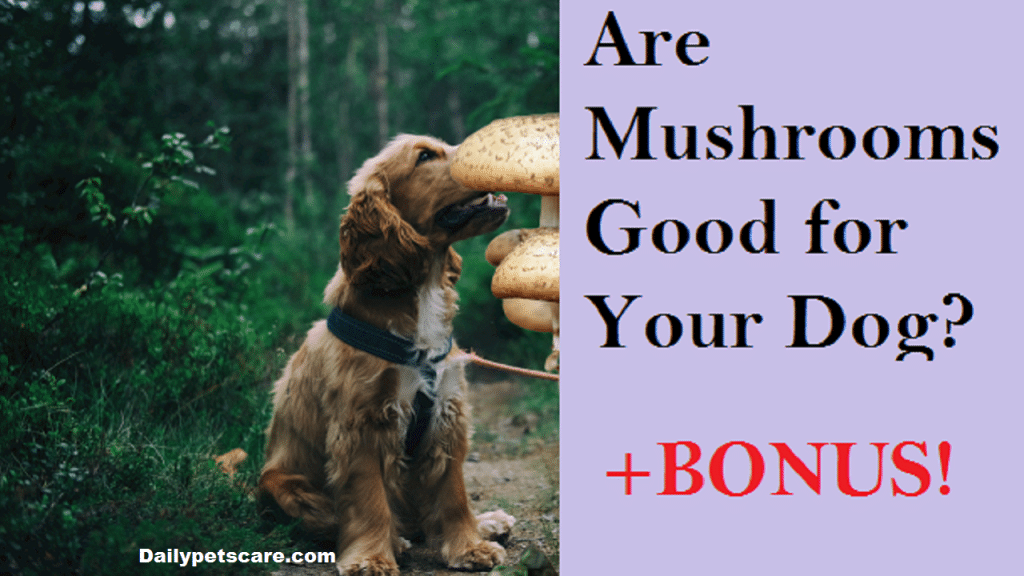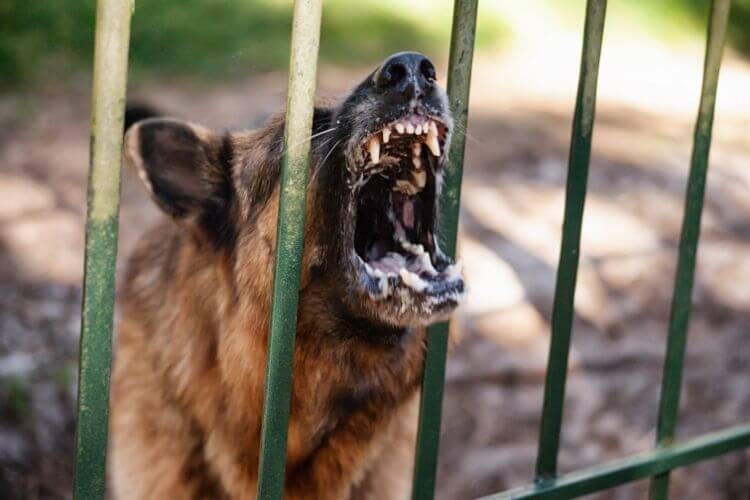Mushrooms are edible fungi that many people love. But are mushrooms good for dogs? Well, it all depends on the type of mushroom. There are thousands of mushroom species worldwide, and while some are edible, others are highly poisonous and could kill your dog.
While some mushrooms could be toxic, most store-sold mushrooms are safe for dogs. Examples of grocery-sold mushrooms that your dog could eat include shiitake, canned, portabella, and cremini mushrooms.
In this article, I’ll cover different types of mushrooms, their nutritional value, the impacts of your dog ingesting toxic ones, and more!
I’ll also mention a few products you might want to buy when making your next order.
You can’t afford to miss a thing. Therefore, read till the end!
Are Mushrooms Good for Dogs?
Mushrooms are good for your dogs, but some could be deadly. Sadly, it’s not always easy to distinguish between safe and toxic mushrooms.
Most store-bought mushrooms, though, are safe for your dog to consume. Avoid any seasoned store-sold mushrooms because additives could also cause complications to your dog, for example, diabetes and obesity.
Wild mushrooms, on the other hand, may or may not be safe. Some are highly poisonous, and your dog could succumb soon after eating them. The fastest thing to do after your dog eats a wild mushroom is to contact your vet for advice.
Sadly, most mushroom poisoning experts and dog veterinarians believe more fatal dog poisoning cases exist than reported.
Be warned, wild mushrooms can grow anywhere, including your compound. So, if you notice them within your home, call a specialist to determine what type they are and if they’re safe for your dog to consume.
What Are the Nutritional Attributes of Edible Mushrooms for Dogs?
If you can eat organic store-sold mushrooms, your dog can also have a bite! Why? Most of the human-edible food is also safe for your dog. Mushrooms, just as they have numerous health benefits for humans, have high nutritional benefits for dogs.
Though some dogs are peaky eaters, most love mushrooms and can eat them regardless of where they grow.
Like blueberries, this edible fungi is rich in antioxidants, vitamins, and minerals vital for your dog's growth. Though the nutritional value may vary based on the mushroom species, below, I’ll discuss the nutritional benefits of mushrooms in general.
So, continue reading.
Vitamin B6
For your dog’s body to generate glucose, the nervous system to function correctly, and the red blood cells to be formed, he needs vitamin B6. This vitamin is also responsible for strengthening the immune system, gene activation, and niacin synthesis.
An example of a mushroom that is packed with Vitamin B6 is shiitake.
Selenium
Aids your body in making antioxidant enzymes that prevent damage to cells. Mushrooms such as portabella and cremini are packed with selenium.
Vitamin D
In the approved quantity, vitamin D is vital as it helps a dog’s body regulate and retain phosphorus and calcium. Maitale is an example of a mushroom rich in vitamin D.
Carbohydrates
Dogs, for example, German shepherds who love to swim, are energetic breeds. That’s why mushrooms are a vital part of their diets. Besides, the mushroom polysaccharides boost the growth of healthy bacteria in dogs. Normally, polysaccharides get to the colon unchanged, encouraging bacteria growth, which is good for your dog.
Soluble Fiber
Some mushrooms, such as shiitake, are great for your dog because they keep cholesterol levels low. It’s the dietary fiber in these and other mushrooms that lowers the production of cholesterol. In addition, mushrooms block cholesterol absorption and minimize its levels in your dog’s bloodstream.
Sodium
Though it depends on which mushroom your dog eats, some mushrooms are low in sodium. Low sodium intake minimizes the chances of high blood pressure in dogs. Instead of buying store food with additives and salt, give your dog organic mushrooms to lower sodium intake. Otherwise, high sodium intake causes excess fluid retention in the body, resulting in high blood pressure in dogs.
Besides, you don’t have to season mushrooms because they have a savory flavor, which your dog loves. So, adding salt or other flavors isn’t necessary. One cup of mushrooms contains only 4.8 mg of sodium, which is very low and healthy for your dog.
Amino Acid and Antioxidants
At least 6 million dogs yearly are diagnosed with cancer. You can lower the chances of your dog falling victim by giving him mushrooms, and here’s why.
Mushrooms are ergothioneine-rich. This amino acid and antioxidant slows the damage to cellular cells. Mushrooms that have high ergothioneine include maitake, shiitake, and king oyster.
Add them in the correct quantity to your dog’s diet to minimize the chances of cancer.
Below is a table showing the nutritional value of mushrooms. Check it out.
| Mushroom Nutritional | Value (1 cup of mushrooms) |
| Protein (g) | 3.0 |
| Niacin (mg) | 3.5 |
| Calcium (mg) | 2.9 |
| Phosphorus (mg) | 82.6 |
| Sodium (mg) | 4.8 |
| Vitamin C (mg) | 2.0 |
| Energy (calories) | 21.1 |
| Choline (mg) | 16.6 |
| Magnesium (mg) | 8.6 |
| Selenium (mcg) | 8.9 |
| Zinc (mg) | 0.5 |
| Carbohydrate (g) | 3.1 |
| Potassium (mg) | 305 |
| Iron (mg) | 0.5 |
| Folate (mcg DFE) | 16.3 |
| Vitamin D (mg) | 0.2 |
| Copper (mcg) | 305 |
Are Wild Mushrooms Good for Dogs?
Many wild mushrooms are good for dogs, but telling which is good or bad is difficult. Besides, the bad mushroom is incredibly toxic to dogs.
Sadly, some wild mushrooms have a fishy odor, which dogs love. This is why there are many mushroom poisoning cases among many dog owners. Such may include Inocybe spp. And Amanita phalloides, also known as death cap.

Therefore, vets recommend avoiding all wild mushrooms. Veterinarians further suggest that in case a dog eats a wild mushroom, the first thing is to contact them for advice.
Wild mushrooms bad for dogs include:
- Amanita muscaria: It is a cosmopolitan mushroom that grows in Central America, Hindu Kush, and the Mediterranean regions. Its other names are deadly Agaric or fly agaric.
- Amanita phalloides: This mushroom is common in Europe. It’s also called ‘death cap.’ However, it’s also common in California and some parts of Canada.
- Clitocybe dealbata: This mushroom is commonly found in North America and Europe and derives its name from its poisonous substance. It’s also known as an ivory funnel, sweat-producing clitocybe, or sweating mushroom.
- Inocybe geophylla.: Also called earthy inocybe, it mainly grows in North America and Europe. Respond quickly if your dog eats mushrooms under a deciduous tree or conifer during autumn or summer. It might be this variety as those are its growing areas and seasons.
- Galerina marginata: Mostly found in the Northern Hemisphere, this mushroom may also be found in Australia. It’s also known as Galerina autumnalis or deadly Galerina and grows on decaying conifer wood.
Symptoms of Mushroom Poisoning in Dogs
Mushroom poisoning symptoms in dogs may vary based on what species he has eaten. On the other hand, a dog with underlying health conditions could show signs soon after eating based on their health conditions.
Unfortunately, most healthy dogs might not show any signs of poisoning until 12 hours later! Such could cause a fatal sickness in your dog!

This explains taking immediate action when you’ve noticed your pet has eaten wild mushrooms.
You can know if your dog has eaten wild mushrooms if he shows symptoms such as diarrhea, watery eyes, and seizures. For example, if your dog eats Clitocybe dealbata and Inocybe spp. Mushrooms, he will have the following symptoms:
- Diarrhea
- Salivation
- Increased urination
- Neurological signs
If your dog eats false morel, he may not die, as this species isn’t fatal. Some of the symptoms you’ll notice after he has eaten it include:
- Diarrhea
- Profuse vomiting
Another mushroom species you must be warned of is the Amanita because it is rich in amanitin toxins.
You don’t want your dog to come across this species because of the damage it can do! Besides, you’ll notice a false recovery period upon eating Amanita mushrooms!
This gives you hope, thinking your dog is finally recovering, only to lose him a few hours later.
Amanita mushrooms cause deadly gastrointestinal symptoms in dogs, for example, bleeding, diarrhea, vomiting, abdominal pain, dehydration, lack of appetite, extreme drooling, and straining to defecate.
Tremors, seizures, sedation, and staggering are other symptoms of eating amanita mushrooms. After a while, your dog may suffer from acute kidney injury or liver failure and eventually die.
Other types of mushrooms could cause a coma, or your dog could collapse.
Mushroom Poisoning Treatment in Dogs
Mushroom poisoning treatment in dogs could vary based on the species they’ve eaten and how soon they get to the vet.
As mentioned in this article, symptoms can show immediately for some dogs, but it could take up to 12 hours for others.
The best thing to do after noticing that your dog has ingested mushrooms is to carry a sample to the vet. Wrap it in a damp paper towel, store it in a clean paper bag, and take it to the veterinarian. This makes it easy for the vet to determine the best action to save your dog's life.
However, if the dog has eaten the whole mushroom, take note of the surroundings. What type of trees, bushes, and grass is growing around? Such could also hint to the doctor about the possible species growing there.
But how long does a dog recover from mushroom poisoning? Well, there’s no specific time, as it depends on the severity of the toxin in the mushroom.

If the toxic mushroom has already started doing the damage, your vet might administer drugs to counteract the mushroom toxins. Based on the mushroom species ingested, some of the drugs your vet might administer include anti-nausea and liver protectants. To control toxin symptoms, your vet might also administer IV fluids.
In extreme toxicity, your dog might require supportive care, under which your vet tries to keep the pet comfy while trying to manage the symptoms.
Also, if the dog falls into a coma-like sleep, your vet might request more time to monitor him until he wakes up, even though the coma isn’t fatal.
If you manage to arrive in the hospital a few minutes after he has ingested the toxic mushroom, the vet may induce vomiting. If it’s impossible to induce it, he may use activated charcoal to bind the mushroom poison as well as neutralize its effect on your dog.
If the poisoning is mild, your vet could suggest you go home, as the problem will resolve in 1 to 2 days. Just ensure he gets enough rest. Preferably, let him sleep in a separate cage from other pets.
One of the best cages for dogs during such times is the MidWest Homes because you can closely monitor your dog while he naps. Besides, it has a removable leak-proof pan, making cleaning the mess easy in case your pet vomits. Also, it has a divider panel, which makes it easy to separate your sick dog from other pets, giving him enough room to rest.
For the best treatment, it’s always necessary to note the time of consumption and the quantity of the mushroom ingested.
Can Dogs Be Allergic to Mushrooms?
While store-bought organic mushrooms are safe, some might cause allergic reactions in some dogs. However, only a few dogs have allergic reactions to mushrooms. If your dog has never eaten mushrooms, give him small portions and watch how he reacts after a few minutes or hours.
If you notice any of the following symptoms, your dog is allergic to mushrooms.
- Vomiting
- Difficulty breathing
- Excess gas
- Hives
Take your pet to the vet immediately after you notice any or all of the above symptoms for assessment.
Are Grocery Store Mushrooms Safe for Dogs?
As mentioned, store-bought mushroom, for example, portobello, is safe for your dog to ingest. Better still, go for organic mushrooms with no additives like garlic, salt, onions, or butter. Such ingredients could cause serious health problems in your dog.
Nevertheless, mushrooms might not be the best to offer to a dog compared to other dog foods and fruits. For example, strawberries have more health benefits for dogs than mushrooms.
Ripe bananas are also great when given as a treat to dogs. Have you tried giving your dog watermelon, especially after vigorously exercising on a summer afternoon?
Dogs, especially huskies, love watermelons!
Be warned that no fruit is good for dogs when given in large quantities because they have a high sugar content. Also, your vet should assess your dog before introducing any food or treat, as some could have underlying health conditions.

Also, of toxic mushroom ingestion, ensure the dog has access to clean drinking water because he could quickly get dehydrated.
Buy your dog a MalsiPree Dog Water Bottle if you have not already! Not only is this bottle portable, but it also helps save water. It’s leakproof, compact, and safe for your dog.
Can Dogs Eat Cooked Mushrooms?
Dogs can eat cooked mushrooms. However, avoid adding any additives as they could cause health complications. To safely feed your dog mushrooms, follow the simple steps below.
- Thoroughly clean the mushrooms with clean running water
- If you notice any dirt, wipe it with a dry paper towel
- Chop the mushrooms and set aside.
- Pour a little olive oil into a pan, allow to heat, and then add the mushrooms.
- Continue to stir until the mushrooms are ready.
- Allow to cool, and pour enough into your dog’s bowl to eat.
By the way, have you bought the best food dispenser for your pet? Here’s a perfect match for you! The WOPET 6L Automatic Dog and Cat Food Dispenser.
You can control the dispenser from anywhere using your smartphone! That’s technology, and it makes things easy for you. You can record a song or message for your pet to listen to during meals.
If you’re wondering which is the best olive oil to buy for your dog food, consider buying extra virgin olive oil. Did you know that olive oil helps moisturize your dog’s skin? Besides, olive oil is rich in vitamin E, omega-3 fatty acids, and phytonutrients.
Verdict
Mushrooms are good for dogs as they’re rich in vitamins that boost their growth. Mushrooms also are rich in carbohydrates, which give your dog energy to swim, play, and work out.
Not to mention, it also contains soluble fiber, which keeps the digestive system working correctly. Other nutrients found in mushrooms include selenium and sodium, among others.
Nevertheless, wild mushrooms can be highly toxic. Therefore, you must only feed your doggy organic store-sold mushrooms. Organic because other mushrooms may contain harmful additives.
Be warned, though; mushrooms shouldn’t substitute your dog’s food as they don’t have many nutrients for healthy growth.


